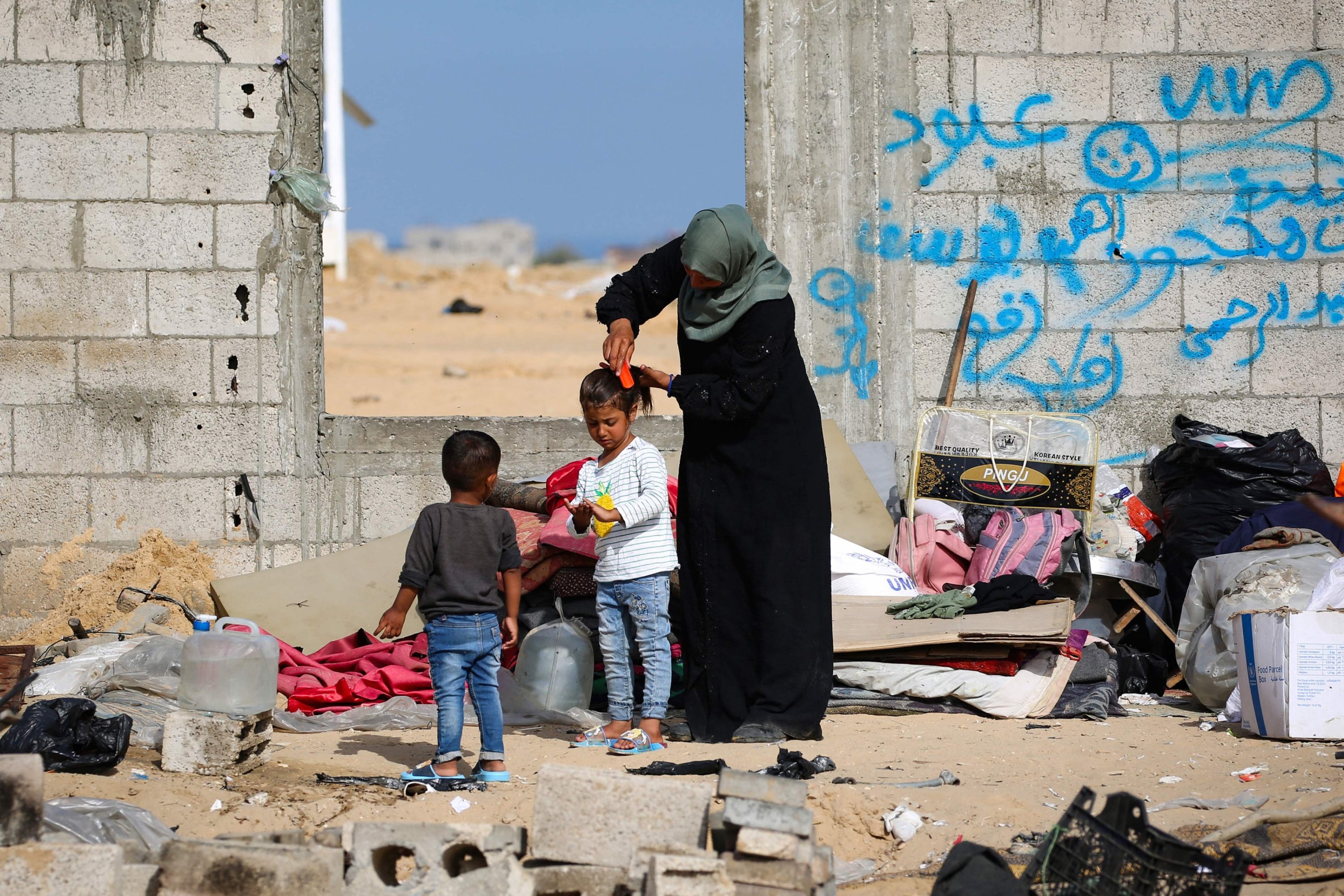© Turkuvaz Haberleşme ve Yayıncılık 2026
The United Nations has warned of an "apocalyptic" aftermath in Gaza amid aid shortages and with over 800,000 already displaced people fleeing once again.
The U.N.'s humanitarian chief Martin Griffiths warned Sunday of famine in the besieged territory as Israel's stranglehold on aid continued.
"If fuel runs out, aid doesn't get to the people where they need it, that famine, which we have talked about for so long, and which is looming, will not be looming anymore. It will be present," Griffiths said.
"And I think our worry, as citizens of the international community, is that the consequence is going to be really, really hard. Hard, difficult, and apocalyptic," he told AFP on the sidelines of meetings with Qatari officials in Doha.
An Israeli incursion into the southern Gaza city of Rafah, launched in the face of international outcry, has deepened an already perilous humanitarian crisis in the Gaza Strip.
Griffith, the U.N.'s Under-Secretary-General for Humanitarian Affairs and Emergency Relief Coordinator, said some 50 trucks of aid per day could reach the hardest-hit north of Gaza through the reopened Erez crossing.
But battles near the Rafah and Kerem Shalom crossings in Gaza's south meant the vital routes were "effectively blocked," he explained.
"So aid getting in through land routes to the south and for Rafah, and the people dislodged by Rafah is almost nil," Griffiths added.

Earlier Saturday, the U.N. said that 800,000 people had been "forced to flee" Israel's assault on the southern city of Rafah.
"Nearly half of the population of Rafah or 800,000 people are on the road having been forced to flee since the Israeli forces started the military operation in the area on 6 May," UNRWA chief Philippe Lazzarini said in a post on social media site X.
Following the evacuation orders Gazans have fled to "the middle areas and Khan Younis including to destroyed buildings," he said.
"Every time, they are forced to leave behind the few belongings they have ... Every time, they have to start from scratch, all over again," Lazzarini said.
Griffiths, meanwhile, added that the military action in the southern Gazan city was "exactly what we feared it would be."
"And we all said that very clearly, that a Rafah operation is a disaster in humanitarian terms, a disaster for the people already displaced to Rafah. This is now their fourth or fifth displacement," he said.
With key land crossings closed, some relief supplies began flowing in this week via a temporary, floating pier constructed by the United States.
Griffiths said the maritime operation was "beginning to bring in some truck-loads of aid" but he cautioned "it's not a replacement for the land routes."
He explained that there were a "number of different conferences being mooted and potentially planned" to discuss humanitarian arrangements in Gaza, including in Jordan.
"I feel very strongly and I know that the secretary-general feels very strongly that the United Nations needs to be present at the table when all these things are being discussed," the U.N. aid chief said.
But he cautioned on the likelihood of a U.N. peacekeeping force for the Palestinian territories. A proposed deployment could be blocked by a veto from permanent Security Council members, while it would also require the acceptance from the warring parties of the U.N.'s presence.
